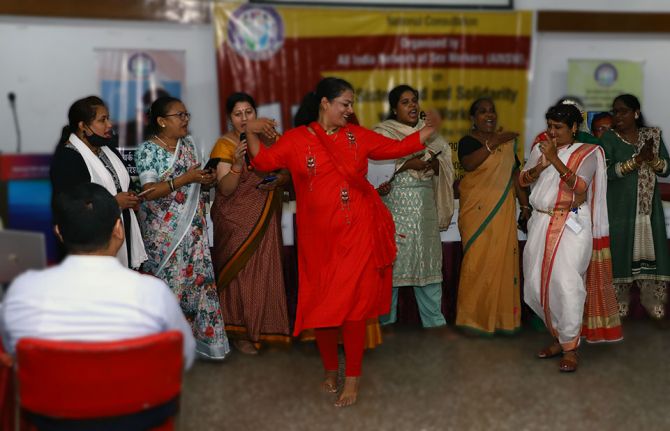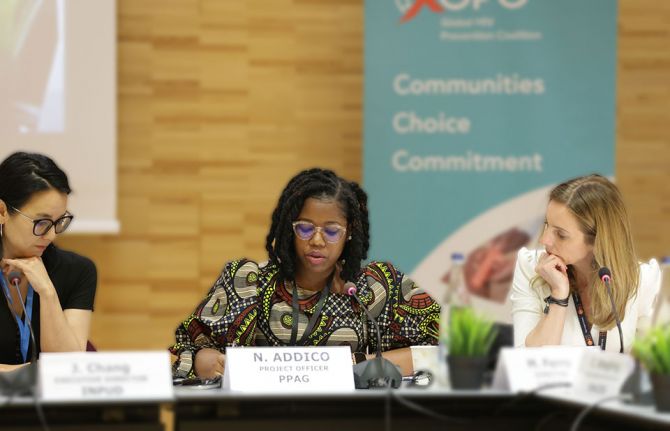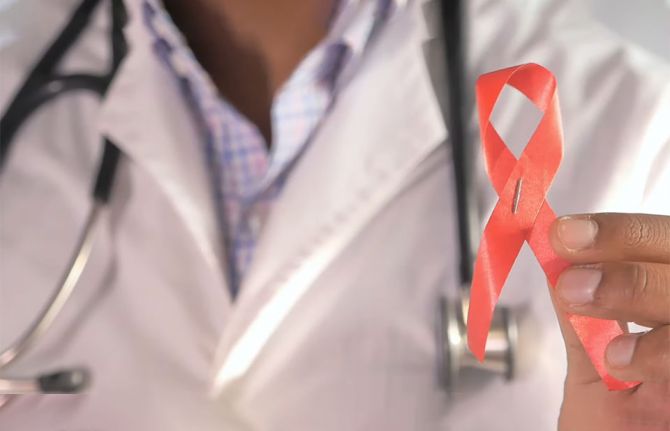
Feature Story
Community education raises AIDS awareness in Papua
23 Octubre 2006
23 Octubre 2006 23 Octubre 2006
By involving the entire community, the HIV education campaign has become a local effort.
Like many young people, 19-year-old Rifal* never used to worry about AIDS. He saw it as a problem that only affected high-risk groups, such as intravenous drug users. His view changed in February 2006, when he learned he was HIV positive. Rifal hasn’t told his family or friends of his status. He fears being stigmatized. The only place he feels comfortable discussing his condition is at a clinic, where he receives medical and psychological care.While AIDS affects all of Indonesia, in Papua the proportion of people living with HIV relative to the total population is well over 10 times the national rate.

Through the campaign, peer educators in Papua are teaching students about HIV before they become sexually active.
To stem the tide of transmission, a programme supported by UNAIDS Cosponsor organization UNICEF is educating young people in Papua about HIV. The goal of this campaign is to promote awareness in the classroom and train young people to serve as peer educators. In addition to visiting older students, UNICEF is working to bring AIDS education to young people in junior high school – a critical time to reach out to young people on HIV and sexuality. The HIV education effort also aims to reach out to at least 10,000 young people who are no longer attending school. Peer educators visit local hangouts and areas on the beach that are frequented by young people who may no longer be in school and hand out booklets about AIDS awareness.As well as reaching out to young people, the programme also trains teachers to educate students about reproductive health and HIV.

The HIV education campaign has become a local effort – with Papuans helping other Papuans to protect themselves.
Rifal believes this grassroots effort is needed to contain the spread of HIV. “Young people need to know more about using condoms and protecting themselves so that they don’t take risks,” he said. Sister Zita Kuswati, a Catholic nun in the regency of Sorong, has become one of the area’s most tireless and outspoken advocates in the fight against AIDS. As the leader of an HIV support group, Sister Kuswati believes information is power for young people.“We really needn’t be afraid of AIDS if we know how it is transmitted,” she said. “Students should be made aware of the method of transmission, the method of prevention and how people can be treated as early as possible.” “The epidemic in Papua is becoming more generalized, so raising awareness among young people is absolutely vital,” said Jane Wilson, UNAIDS Country Coordinator in Indonesia. “Greater education is helping young people make a difference within their communities and can help turn the tide on the epidemic.”
By Steve Nettleton, UNICEF. This story first appeared on the UNICEF web site www.unicef.org
*Name has been changed to protect identity
All photo credit : UNICEF Video
Related
 Indian partners reflect on a year after sex workers’ human rights affirmed
Indian partners reflect on a year after sex workers’ human rights affirmed

05 de octubre de 2023
 The urgency of HIV prevention among adolescent girls and young women
The urgency of HIV prevention among adolescent girls and young women

01 de junio de 2023

